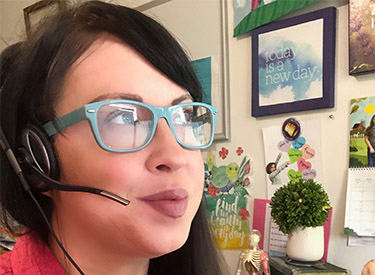Career Path of a Consultant: An Interview with a top Consulting Professional at UnitedHealth Group’s Optum
There’s an evolution underway in the health care industry, and consultants are definitely in the forefront and in the trenches. These traveling professionals often work challenging schedules and fly all over the country to share their expertise and insight with government entities and hospital networks for the purposes of improving the health care system for everyone. UnitedHealth Group offers consulting career paths in a wide spectrum of fields from provider and health plan to technology and Quality-STARS. One of our best, John W., was willing to participate in a special interview last month with our Consulting Careers Twitter handle, and we wanted to share his more in-depth answers with our audiences here.
Tell us about your career path and how you came to be in Consulting? Can you tell us what specific area of Consulting you are currently in?
John W.: I think my career path has been a bit different than most. I majored in Sociology in undergrad and was very intrigued by the social determinants of health (i.e., access to health care services and educational/economic resources). During that time I also began freelance writing focused on health policy, politics and government administration. Over the past 8 years I’ve written over 150 articles and have been published in CNN, Forbes, The Huffington Post, The Houston Chronicle, Orlando Sentinel and Black Enterprise. My extensive conversations with health care experts fueled my curiosity to work in the public sector. I worked for a state Medicaid agency for three years and left as a program manager overseeing a $125 million biometric personal care claims program – the first of its kind in the state. I helped procure the vendor, hired and trained my direct reports, led stakeholder meetings, and reported findings to directors and the State Medicaid Director.
Consulting piqued my interest because I became curious about how I could have an impact in the private sector. How could I translate the knowledge and experience I accumulated at Medicaid? My curiosity led me to Deloitte in their public sector unit, and now, Optum.
What types of challenges do you encounter in a Consulting role?
I think in general, regardless of the project, common challenges are: scope creep, lack of stakeholder communication, internal (client) siloes among different divisions/units, and properly defining the path forward. Any of these can be a deal breaker that jettisons a project or, worse, an entire client relationship. The keys are patience, communication, and utilizing as many resources at UnitedHealth Group as necessary to be successful. That is the biggest benefit to working for an organization as strong as UnitedHealth Group.
How do you think being a consultant for UnitedHealth Group is different than some other Consulting firms? I think by virtue of UnitedHealth Group being an insurer, client (UnitedHealthcare frequently hires Optum) and consultancy, the organization is better positioned to understand the unique perspectives and challenges in health care delivery. No other consultancy is as diversified.
What types of projects are you part of (that you can speak about publicly)?
I recently worked with a large insurer in the Midwest to ensure their operations were prepared for the transition to ICD-10.
How often do you travel for this role? And if you travel frequently, do you find that a positive or negative about the role?
I traveled a typical consultant schedule of Monday-Thursday. I’m accustomed to this schedule so it comes natural to me.
What types of clients do you work with outside the organization?
Insurers, Medicaid agencies, and providers.
What advice do you have for someone who may wish to explore a Consulting career but hasn’t done it before?
Speak to current consultants at a range of organizations. Each consultancy has a different culture and career trajectory. If one does not personally know of any consultants, Linkedin is a great way to reach out and introduce one’s self.
What types of benefits does a Consulting career provide that perhaps cannot be found in most other roles?
Flexibility, travel, and in some ways being your own boss. While one may not be managing a project (particularly if at the beginning of their career) the onus is on them as to where their career will go and how fast they’ll get there. And I would say that is truer in the consulting industry than in many other arenas.
As a fun question, what types of things do you enjoy doing outside of work that help you disengage and relax?
I still write articles but choose not to publish work in order to avoid conflicts of interest. Also I enjoy bowling, billiards, traveling, cooking and working out.
Can you tell us what type of personality seems to perform well in a Consulting career?
I think it’s important to be intellectually curious, patient, outgoing, and even-tempered. All of those qualities will help to overcome challenges and build long-lasting relationships with peers, clients, and management.
What does your reporting structure look like? Do you oversee people in your role?
No, I do not oversee anyone on a regular basis. As a senior consultant, it’s possible I could oversee consultants or analysts on a particular project, but I have not had such experience yet. I report to a manager and we touch base once a week or so. I also have a ‘buddy’ that was assigned to me when I started at Optum and we chat once a month. My buddy is very helpful because she’s an experienced peer who shares great advice.
Tell us how UnitedHealth Group has given you tools to improve/expand on your career?
The first thing that comes to mind is the networking opportunities. There are regularly scheduled calls and events for consultants to build their network and nurture relationships. That’s crucial to what we do. Also there are regularly scheduled trainings on a variety of topics. Our LearnSource platform is an expansive knowledge base built around our frameworks.
Are there any schools, academic organizations or universities you’d recommend for someone who may wish to have a Consulting career? Is an MBA helpful from what you can tell?
I did not pursue an MBA [Masters of Business Administration]. I have peers and friends who have and believe it has helped their consulting career. It depends on the person, their previous experience, and their current personal situation. An MBA is probably most helpful for a ‘generalist’ who tends to (or plants to) cycle through different industries in a consultative capacity vs. an industry-specific consultant (such as myself) who is focused on health care.
Are there any professional certifications that would be beneficial to have in a Consultant role?
Yes, within each industry there are professional certifications that can help consultants master a particular subject matter, build their network, and stand out from their peers. Also there are certifications focused on project management/process improvement (PMP, Lean Six, Six Sigma, etc). If a person has the time and energy, they should pursue both kinds of certifications.



